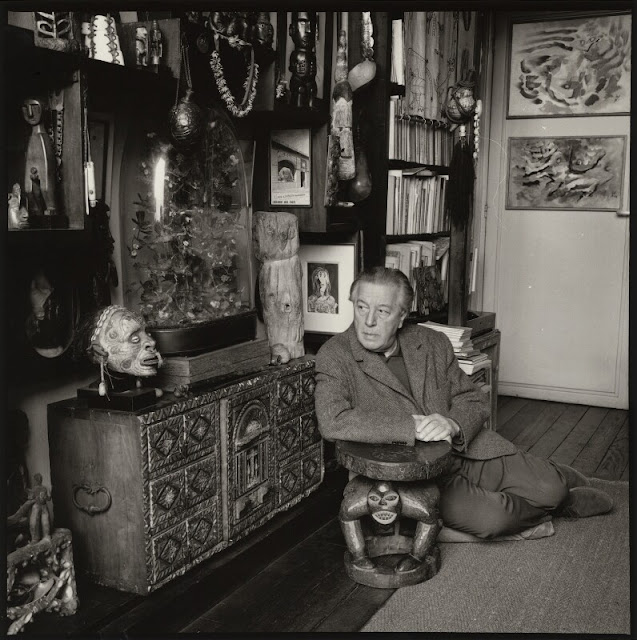Sometimes I like to think that walking is an abstract, immaterial activity without any end product. You go out, you come back, and although you may be changed or uplifted or enlightened, you haven’t made or acquired anything.
Unless, of course, your walk involves scavenging or shopping, and if you’re an assemblage artist.
Having thought about Harry Smith picking up paper planes from the streets on his walks around Manhattan, I started to think about Joseph Cornell. It seems possible that they met, though I can’t find any hard evidence for it.
I reread parts of Deborah Solomon’s biography of Cornell, Utopia Parkway and she does have Cornell as something of a walker. Apparently he would often go walking in Central Park after visiting the galleries on 57thStreet, including Peggy Guggenheim’s Art of This Century. The Cornell exhibition at London’s Royal Academy was titled Wanderlust.
But this was the passage in Solomon’s book that really stirred me up, ‘In the 1920s, as Cornell was combing through jumbles of objects in New York City, across the world, in the streets of Paris, Andre Breton was scouting flea markets for intriguing trouvailles … and in his autobiographical Amour fou (1936) he described his practice of “wandering in search of everything.”’ I suppose the thing about searching for everything is that wherever you go, you find what you’re looking for.
Breton is widely quoted as saying ‘The simplest act of Surrealism is to walk out into the street, gun in hand, and shoot at random.’ But I’ve never seen why walking had to be involved. Wouldn’t it be just as surreal to fire your gun out of the window? Or into your own ceiling?
In 1942 Breton and a few other Surrealists were in New York, and were not much impressed by the city. Solomon again, ‘Left with nothing to do, the once-scandalous Surrealists visited galleries, sat through movie matinees and strolled down Third Avenue as Breton pointed out surreal-like objects in the windows of the secondhand stores.’
I can’t find a convincing picture of Breton walking – hard enough to find a picture of him outdoors - but here he is collecting butterflies with Benjamin Peret; some walking must surely have been involved.
Cornell and Breton did meet – Cornell organized a showing of some ‘nickelodeon classics.’ And as Solomon says, the Surrealists realized ‘Cornell himself was as exotic as any Surrealist creation, a passive autodidact who wandered the city with a brown shopping bag full of trouvailles.’
And then, from the dusty dossiers of my memory, I remembered, a long time ago, I was wandering around Manhattan and went into a fairly modest antiques emporium where various dealers were doing business, and the guys were still all aflutter cause the previous day Michael Jackson had been in and bought a couple of items.
I’m sure this was true, though the idea of Michael Jackson wandering around New York looking for unconsidered trifles seemed as unlikely then as it does now. But a little research reveals the pictures above and below of Michael antiquing, and according to online sources he was a major collector of, among other things, comic books, clowns, unusual jewelry, and materials relating to Charlie Chaplin and the Three Stooges, much of it, it must be said, acquired at auction rather than by wandering the streets looking in antique shops.
And then the thought of auctions reminded me of a curious moment in my life when I was staying in the Daily Telegraph flat in Paris. Did you know the Daily Telegraph had a flat in Paris? I didn’t. And there on a bookshelf was the 8 volume auction catalogue of the Andre Breton sale.
I thought very seriously about stealing it, but I didn’t a) because of my own moral compass, though that was probably the least of the reasons, b) because I thought somebody might notice it had gone, and I didn’t want to be pursed by the Daily Telegraph and/or the French police, and perhaps most important of all c) because the volumes were immensely heavy and I would have had to carry them on my long walk to the station to get a train back to England.
I see that catalogue currently sells for a few hundred quid and I don’t know if that makes me feel better or worse.










